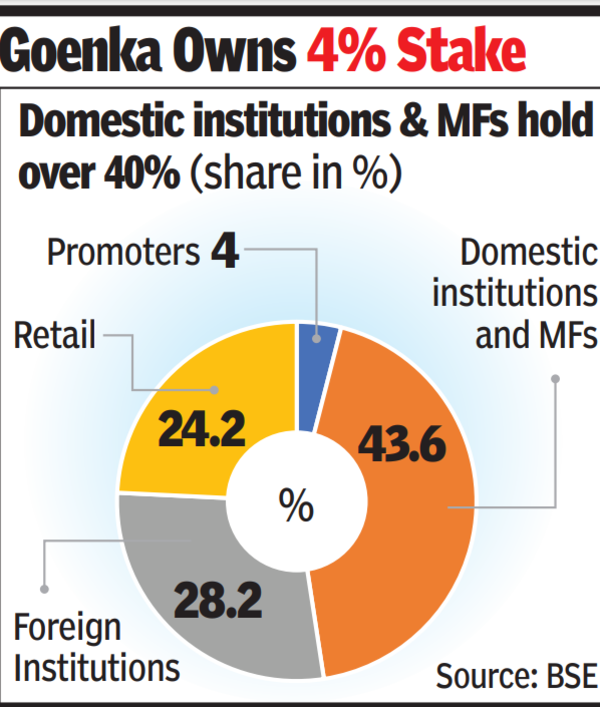Goenka owns 4% in Zee, which was founded by his father Subhash Chandra in 1992. According to rules, any person with or without holding any shares in a listed target company, can make an offer to acquire shares of the entity subject to a minimum offer size of 26%.Also, any shareholder or group of shareholders holding at least 10% in a listed company can move a resolution to change its directors.
Prior to Zee announcing a merger deal with Sony in 2021, the Indian company’s then largest shareholder Invesco had sought a rejig of the board including the ouster of Goenka. Unless Goenka procures funds for Zee’s growth plans, he could face a similar situation with investors teaming up against him.

Though the company has cash on its books and carries hardly any debt, its profits have been plunging on weak industry dynamics. “The fallout of the failed merger will compound problems for Zee and it could see institutional investors voicing their concerns for a change. However, the current management would have been cognizant about this and would have already created a contingency plan to tackle this,” said N V Capital managing partner Vivek Menon.
The largest institutional shareholders in Zee are ICICI Prudential MF (7%), Nippon India MF (6%), HDFC MF (5%) and LIC (5%). In the past, Tata Group’s former chairman late Cyrus Mistry, ICRA’s ex MD Naresh Takkar, Fortis Healthcare’s then director Brian Tempest and Dish TV’s promoter Jawahar Goel (brother of Subhash Chandra) were ousted by shareholders.
Not just pacifying investors, Zee would also have to ward off any takeover attempt. “The Zee-Sony merger would have addressed Zee’s low promoter ownership challenge as post-merger Sony would have owned 51%,” said foreign brokerage CLSA.
According to Prime Database, about 80 companies including Infosys, Suzlon Energy and Max Financial Services, had promoter holdings below 15%, as on September 30, 2023. Some like Larsen & Toubro, Zomato, One97 Communications (Paytm) and Delhivery don’t have any promoters.

